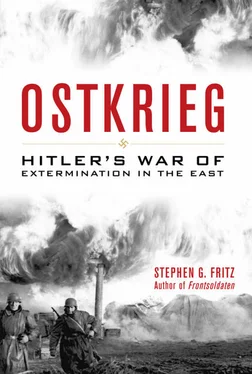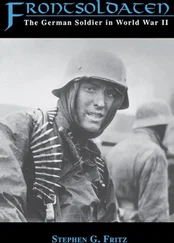Wehner, Gü. “Die Letzten Tage des Krieges: Schulaufsätze von 1946.” Beiträge zur Geschichte der Arbeiterbewegung 33, no. 5 (1991): 390–98.
Weinberg, Gerhard L. “Aspects of World War II German Intelligence.” Journal of Intelligence History 4, no. 1 (2004): 1–6.
———. “Die Wehrmacht und Verbrechen im Zweiten Weltkrieg.” Zeitgeschichte 30, no. 4 (2003): 207–10.
———, ed. Hitler’s Second Book: The Unpublished Sequel to Mein Kampf by Adolf Hitler . Translated by Krista Smith. New York: Enigma, 2003.
———. “Unexplored Questions about the German Military during World War II.” Journal of Military History 62, no. 2 (1998): 371–80.
———. “Zur Frage eines Sonderfriedens im Osten.” In Gezeitenwechsel im Zweiten Weltkrieg? Die Schlachten von Char’kov und Kursk im Frühjahr und Sommer 1943 in operativer Anlage, Verlauf und politischer Bedeutung , ed. Roland G. Foerster, 173–83. Hamburg: E. S. Mittler, 1996.
———. “22 June 1941: The German View.” War in History 3, no. 2 (1996): 225–33.
———. “Germany’s War for World Conquest and the Extermination of the Jews.” Holocaust and Genocide Studies 10, no. 2 (1996): 119–33.
———. Germany, Hitler, and World War II: Essays in Modern German and World History . New York: Cambridge University Press, 1995.
———. “Who Won World War II and How?” Journal of Mississippi History 57, no. 4 (1995): 275–87.
———. A World at Arms: A Global History of World War II . Cambridge: Cambridge University Press, 1994.
———. “Comments on the Papers by Friedlander, Breitman, and Browning.” German Studies Review 17, no. 3 (1994): 509–12.
———. “German Plans for Victory, 1944–45.” Central European History 26, no. 2 (1993): 215–28.
———. “Some Thoughts on World War II.” Journal of Military History 56, no. 4 (1992): 659–68.
———. “Why Hitler Declared War on the United States.” MHQ: Quarterly Journal of Military History 4, no. 3 (1992): 18–23.
———. “German Diplomacy towards the Soviet Union.” Soviet Union 18, nos. 1–3 (1991): 317–33.
———. “What Can German History Tell Us about the German Question?” Proceedings of the South Carolina Historical Association , 1991, 1–8.
———. “Hitler’s Memorandum on the Four-Year Plan: A Note.” German Studies Review 11, no. 1 (1988): 133–35.
———. World in the Balance: Behind the Scenes of World War II . Hanover, NH: University Press of New England, 1981.
———. “Adolf Hitler und der NS-Führungsoffizier (NSFO).” Vierteljahrshefte für Zeitgeschichte 12, no. 4 (1964): 442–56.
———. “Hitler’s Image of the United States.” American Historical Review 69, no. 4 (1964): 1006–21.
Weinzierl, Erika. “Nationalsozialistische Besatzungspolitik in Europa: Einige Bemerkungen zur Rolle von Österreichern.” Zeitschrift für Geschichtswissenschaft 44, no. 7 (1996): 593–607.
Werth, Alexander. Russia at War, 1941–1945 . New York: Avon, 1964.
———. The Year of Stalingrad . London: Hamish Hamilton, 1946.
Westermann, Edward B. Hitler’s Police Battalions: Enforcing Racial War in the East . Lawrence: University Press of Kansas, 2005.
———. “Hitting the Mark, but Missing the Target: Luftwaffe Deception Operations, 1939–1945.” War in History 10, no. 2 (2003): 206–21.
———. “ ‘Ordinary Men’ or ‘Ideological Soldiers?’ Police Battalion 310 in Russia, 1942.” German Studies Review 21, no. 1 (1998): 41–68.
———. “Himmler’s Uniformed Police on the Eastern Front: The Reich’s Secret Soldiers, 1941–1942.” War in History 3, no. 3 (1996): 309–29.
———. “ ‘Friend and Helper’: German Uniformed Police Operations in Poland and the General Government, 1939–1941.” Journal of Military History 58, no. 4 (1994): 643–61.
Wette, Wolfram. The Wehrmacht: History, Myth, Reality . Translated by Deborah Lucas Schneider. Cambridge, MA: Harvard University Press, 2007.
———. Die Wehrmacht: Feindbilder, Vernichtungskrieg, Legenden . Frankfurt: Fischer Taschenbuch, 2005.
———. “ ‘Es roch nach Ungeheuerlichem’: Zeitzeugenbericht eines Panzerschützen über die Stimmung in einer Einheit des deutschen Ostheeres am Vorabend des Überfalls auf die Sowjetunion, 1942.” 1999: Zeitschrift für Sozialgeschichte des 20. und 21. Jahrhunderts 4, no. 4 (1989): 62–73.
———. “Das Massensterben als ‘Heldenepos’: Stalingrad in der NS-Propaganda.” In Stalingrad: Mythos und Wirklichkeit einer Schlacht , ed. Wolfram Wette and Gerd R. Ueberschär, 43–60. Frankfurt: Fischer Taschenbuch, 1992.
———. “ ‘Unsere Stimmung ist auf dem Nullpunkt angekommen.’ Berichte von Feldpostprüfstellen über die ‘Kessel-Post.’” In Stalingrad: Mythos und Wirklichkeit einer Schlacht , ed. Wolfram Wettle and Gerd R. Ueberschär, 90–101. Frankfurt: Fischer Taschenbuch, 1992.
———. “Die propagandistische Begleitmusik zum deutschen Überfall auf die Sowjetunion am 22. Juni 1941.” In “Unternehmen Barbarossa”: Der deutsche Überfall auf die Sowjetunion, 1941; Berichte, Analysen, Dokumente , ed. Gerd R. Ueberschär and Wolfram Wette, 111–28. Paderborn: Schöningh, 1984.
Wette, Wolfram, Ricarda Bremer, and Detlef Vogel, eds. Das Letzte Halbe Jahr: Stimmungsberichte der Wehrmachtpropaganda, 1944/45 . Essen: Klartext, 2001.
Wette, Wolfram, and Gerd R. Ueberschär, eds. Stalingrad: Mythos und Wirklichkeit einer Schlacht . Frankfurt: Fischer Taschenbuch, 1992.
Wettstein, Adrian. “Operation ‘Barbarossa’ und Stadtkampf.” Militärgeschichtliche Zeitschrift 66, no. 1 (2007): 21–44.
Wieder, Joachim, and Heinrich Graf von Einsiedel, eds. Stalingrad: Memories and Reassessments . Translated by Helmut Bogler. London: Arms & Armour, 1993.
Wildt, Michael. “The Spirit of the Reich Security Main Office (RSHA).” Totalitarian Movements and Political Religions 6, no. 3 (2005): 333–49.
———. Nachrichtendienst, politische Elite, Mordeinheit: Der Sicherheitsdienst des Reichsführers SS . Hamburg: Hamburger Edition, 2003.
———. Generation des Unbedingten: Das Führungskorps des Reichssicherheitshauptamtes . Hamburg: Hamburger Edition, 2002.
———, ed. Die Judenpolitik des SD, 1935 bis 1938: Eine Dokumentation . Munich: Oldenbourg, 1995.
Wilhelm, Hans-Heinrich. Rassenpolitik und Kriegsführung: Sicherheitspolizei und Wehrmacht in Polen und in der Sowjetunion, 1939–1942 . Passau: Richard Rothe, 1991.
Wilt, Alan F. “Hitler’s Late Summer Pause in 1941.” Military Affairs 48, no. 4 (1981): 187–91.
Witte, Peter. “A New Document on the Deportation and Murder of Jews during ‘Einsatz Reinhardt,’ 1942.” Holocaust and Genocide Studies 15, no. 3 (2001): 468–86.
———. “Two Decisions concerning the ‘Final Solution to the Jewish Question’: Deportations to Lodz and Mass Murder in Chelmno.” Holocaust and Genocide Studies 9, no. 3 (1995): 318–45.
Wollenberg, Jörg, ed. “Niemand war dabei und keiner hat’s gewußt”: Die deutsche Öffentlichkeit und die Judenverfolgung, 1933–1945 . Munich: Piper, 1989.
———, ed. The German Public and the Persecution of Jews, 1933–1945: “No One Participated, No One Knew.” Translated by Rado Pribic. Atlantic Highlands, NJ: Humanities, 1996.
Читать дальше












